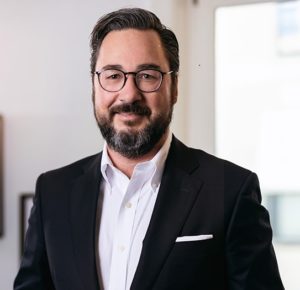
Now that the Swiss Association of Trust Companies (SATC) has successfully pushed through the subordination of all trustees to the Financial Institutions Act (FINIG), it is time to take stock shortly before the end of the three-year transition period. The main question is what options will be available to all Swiss trustees who do not obtain a FINMA licence and will therefore no longer be able to offer professional trustee services from 1 January 2023.
After a process lasting several years, the Financial Services Act (FIDLEG) and the Financial Institutions Act (FINIG) came into force on 1 January 2020. The aim of this regulatory architecture is to strengthen the competitiveness of the Swiss financial centre and improve client protection, and all independent asset managers and trustees were granted an implementation period of three years until the end of 2022.
However, the most recent data published by the Swiss Financial Market Supervisory Authority (FINMA) now shows that at least 30% of all affected companies will not receive a licence. The professional trustees seem to be hit harder than the asset managers. According to FINMA, only 11 trustee licences had been granted to individual companies by the end of July 2022 and 38 were under review. Even if one can assume that this area is new to FINMA and that there are still several in the licensing process with the supervisory organisations, it would not be a big surprise if there are only a few dozen trust companies in Switzerland in the future.
However, because the business activity of trustees includes the management of assets of a trust, professional trustees are expressly subject to FINIG exclusively as financial institutions. What at first glance appeared to be a simplification, however, turned out to be (too) great a challenge in many cases.
It can be assumed that, after an initial analysis, quite a few interested parties realised that they would not pass the licensing process as a professional trustee without massive structural adjustments. This would also explain why only a small number of trust companies have successfully completed the licensing process to date. However, the options for continuing to operate the business without a licence are very limited.
Without considering a complete cessation of business activities as an alternative, a trust company that has exceeded the thresholds of professional activity (gross turnover of more than CHF 50,000 or more than 20 trusts) under FINIG but does not hold a FINMA licence is actually left with only four options.
The first option would be to switch to a foreign trustee licence, which is technically a simple step. However, this has the disadvantage that, without special precautions, direct contact with the beneficiaries must be transferred abroad in addition to all trustee activities. This in particular is a decisive disadvantage with a demanding clientele and is difficult to convey from a professional point of view.
The second and more technical option would be for the current trustee to withdraw to the role of protector. As protector, he is not subject to FINIG, and can continue to play an important role for the settlor and the beneficiaries within the scope of his legal possibilities. However, the duties of a trustee would have to be transferred to a FINMA-regulated company.
Another option would be to sell the company to a FINMA-regulated buyer. This option has the major disadvantage for the buyer that he assumes risks that may only come to light years later. It is also difficult to predict how clients will react.
However, the most advantageous option for both stakeholders would be for the current trustee to transfer his client relationship, together with the relevant staff, to a FINMA-regulated trust company in return for a fee. This asset variant has the great advantage that ultimately little changes for the beneficiaries, provided the client relationship manager remains the same and the licence holder is flexible enough to respond to individual needs. The disadvantage is that not every client relationship may meet the criteria of the new FINMA-regulated entity.
The asset variant is particularly well suited to an orderly transition for smaller and medium-sized trust companies and is also often the simplest route from a regulatory point of view.
Short biography
Beat Haering is CEO and majority shareholder of Carey AG, a multi-family office founded in 2003, which was only the 12th Swiss company to be granted a professional trustee licence by FINMA. He started his career at PWC and worked as controller, CFO and CEO for various international SMEs, listed private equity companies as well as for various financial service providers and trust companies. In 2013, he joined Carey Group as Group CFO where he was appointed CEO of Carey Zurich in 2016, which he acquired in an MbO in 2018.
Beat Haering holds an Executive MBA, Masters in Business Administration and HRM, and a Professional Trustee Certificate.
The article was published in German and French in the magazine SPHERE on September 28, 2022. https://sphere.swiss/de/43402.
 Beat Haering – CEO
Beat Haering – CEO
PO Box 3071 Alderstrasse 49 Zurich 8034 Switzerland
Telephone : +41 43 499 11 44
Fax :+41 43 499 11 55
Email : beat.haering@carey.ch
Website : https://carey.ch/
